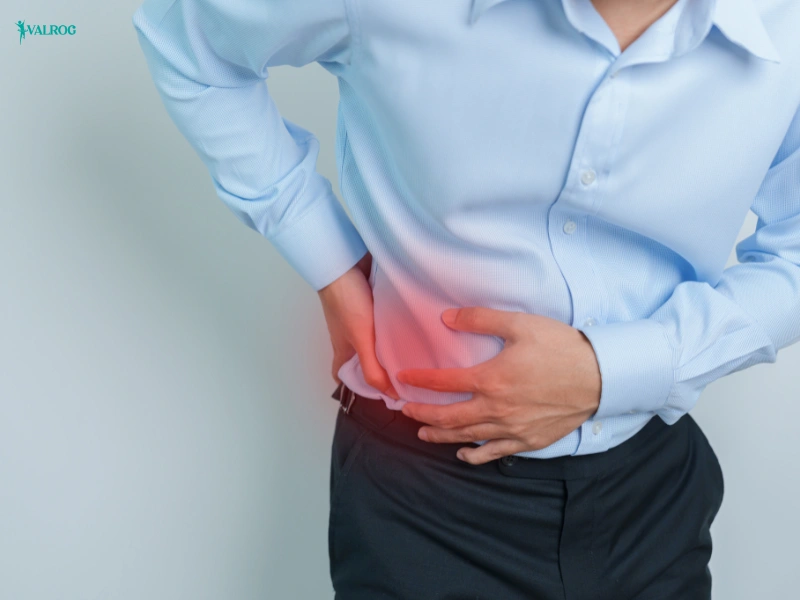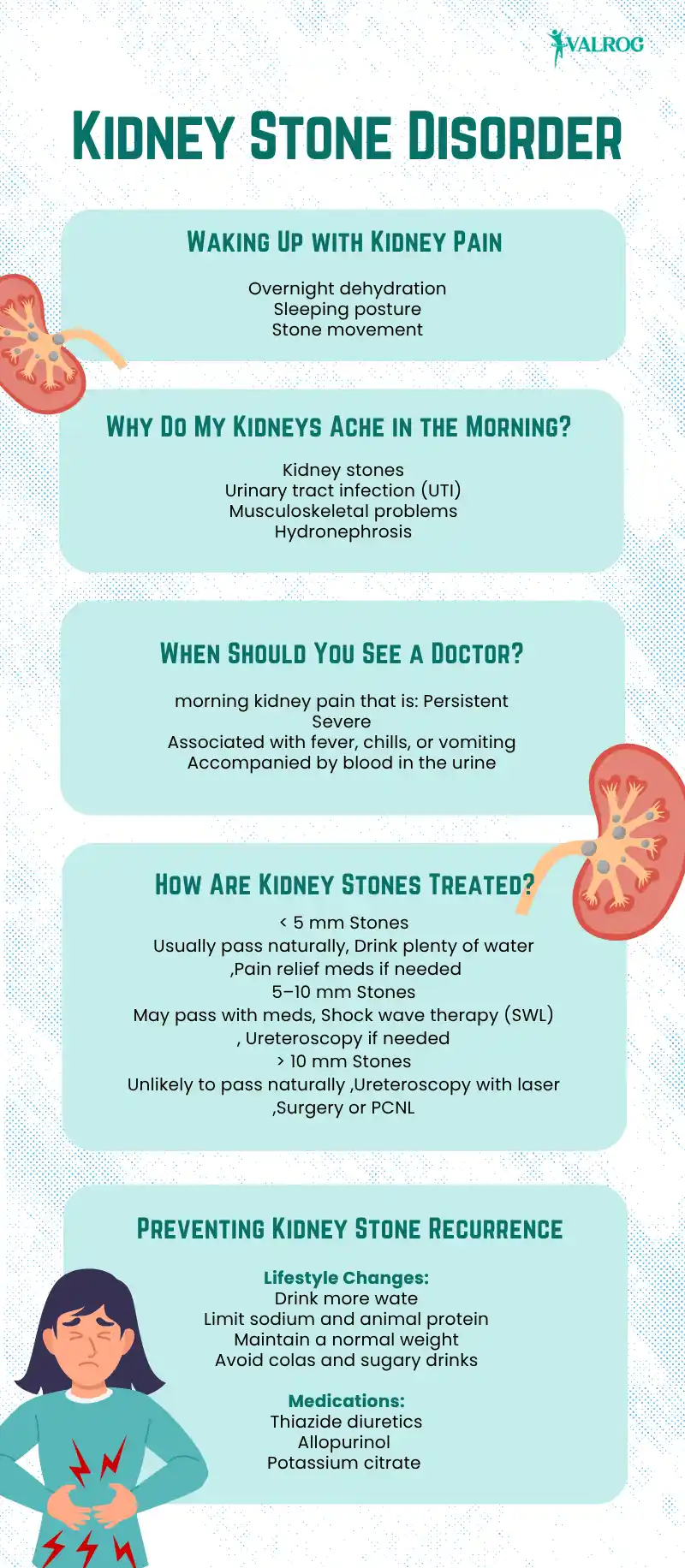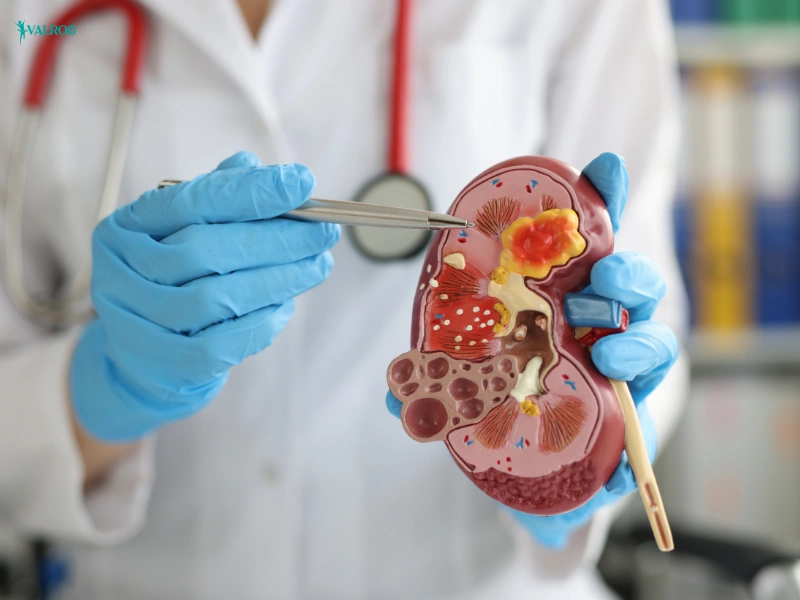When you wake up in pain in the kidney or when you find yourself feeling like your kidneys hurt when you wake up, you are not imagining it. A considerable number of people face kidney pain in the morning and ask what it is. Does it mean it is something serious like kidney stones? Or is it happening because of the way you slept?

This blog examines kidney pain in the morning, what it could it mean, and how it relates to kidney stones. Using the knowledge of clinical professionals and evidence-based instruction, we are going to examine why your kidneys hurt when you wake up?
Why do my Kidneys Hurt When I Wake Up
Kidney discomfort in the morning may be referenced to pain or aching at one or both sides of the lower back below the ribcage. The question by people is:
- Why am I feeling pain in my kidneys on waking up?
- Why my kidneys hurt in the morning?
- Are these the kidney stones pains or any other pain?
Now let us see what may be the reasons.
Waking Up with Kidney Pain: Is It a Red Flag?
Waking up and seeing your kidneys are hurting is not the day to raise your voice; however, it is a condition that should not be ignored.
The reasons may include:
- Overnight dehydration: Drinking in less water at bedtime may make your urine more concentrated, which causes irritation to your kidneys.
- Sleeping posture: When someone sleeps on his back, the pressure on his kidneys or urethra might be amplified.
- Stone movement: Smaller kidneys stones have ability of moving during the night and begin to pain the minute you become awake.
According to Dr. Leonardo Fontenelle and Dr. Thiago Sarti, a symptomatic conservative management is safe even in patients with minor symptoms, whereas, in cases of persisting of the symptoms, a diagnostic workup is indicated.
Why Do My Kidneys Ache in the Morning?
Waking up with kidneys hurting may result from a few mechanisms:

- Kidney stones: The presence of even a small stone causes a mild pain, more so when it produces some movement at night.
- Urinary tract infection (UTI): UTIs could be the cause of pain in the flanks which are aggravated by lying down.
- Musculoskeletal problems: There are cases when patients feel the pain not in the kidneys, but in the back muscles.
- Hydronephrosis: An obstruction occurs partially and may accumulate pressure during a night and lead to pain upon waking up.
Exclusively by making a urinalysis, it can be possible to determine the presence of blood or infection which are among the main hints in order to check the presence of a kidney stone.
Why Do Kidney Stones Hurt More at Night?
It is not in your imagination that kidney stones can be more painful at night or in the morning hours. Here’s why:
- Fluid stasis: The recumbent position causes urine drainage to be slowed, and pressure to accumulate behind a stone.
- Hormonal cycles: Lowest hormone levels of pain numbing cortisol and others occur at night, this increases awareness to pain.
- Position changes: Stones can move as you lie in bed and this can annoy the ureter and this leads to pain.
To determine the presence of a stone, experts explain that in case you experience kidney pain in the morning up or it gets worse at night, the imaging (such as an ultrasound or a non-contrast CT scan) might be required.
Recognizing Symptoms of Kidney Stone Disorder
In addition to morning discomfort of the kidneys, look out on the following indicators:
- Acute or colicky pain on the one side
- Urinary Blood Urea Nitrogen
- Frequent or painful urinary
- Vomiting or nausea
- Radiation pain to lower abdomen or groin
The pain, called renal colic, is sudden and the acute cases may be severe. Non-steroidal anti-inflammatory drugs (NSAIDs, such as ketorolac) are treatment of choice and are usually more effective than analgesics.
When Should You See a Doctor?
Morning kidney pain that is:
- Persistent
- Severe
- Associated with fever, chills, or vomiting
- Accompanied by blood in the urine
…should be evaluated by a doctor.
According to American Family Physician guidelines, patients with suspected stones should undergo:
- Urinalysis
- Urine culture
- Imaging (ultrasound or CT scan)
If a stone is larger than 10 mm or causes infection or obstruction, immediate referral to a urologist is necessary.
How Are Kidney Stones Treated?
Once a stone is diagnosed, treatment depends on its size and location.
- <5 mm stones: Often pass on their own with hydration and pain management.
- 5–10 mm stones: May benefit from medical expulsive therapy (e.g., tamsulosin).
- >10 mm stones: Usually require urologic intervention.
It is necessary to manage pain. NSAIDs are favored, and opioids are not desirable because of their side effects. Although increasing fluids does not assist in acute pain, it is essential in prevention.
Preventing Kidney Stone Recurrence
Morning kidney pain due to stones can often be prevented with long-term strategies:

Lifestyle Changes:
- Drink more water: Aim for 2.5–3 liters/day (your urine should be pale yellow).
- Limit sodium and animal protein
- Maintain a normal weight
- Avoid colas and sugary drinks
Medications:
- Thiazide diuretics for calcium stones
- Allopurinol for uric acid stones
- Potassium citrate to increase urine pH and citrate levels
According to Fontenelle and Sarti, metabolic testing and stone analysis are vital for high-risk patients.
Don’t Ignore Kidney Pain in the Morning
If you are experiencing kidney pain in the morning or it happens in mornings consistently, it is not a bad sleeping position you might have. The common cause will be kidney stones but other diseases such as infections or musculoskeletal problems can also present the same symptoms.
You can make a significant difference through early detection, changes in lifestyle and appropriate treatment. In case of a doubt, consult your health professional, and do not allow the pain to increase.
